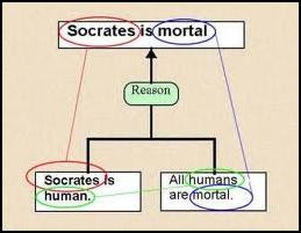

However, if this is true, my reason for believing Dawkins can only be that I am genetically programmed to do so, it is predictable, I obey causal laws. So I do not believe him because he is right and has persuaded me, but because it was always going to happen, granted my biochemistry. Some argue that this circular argument invalidates a fundamental assumption of Dawkins’ and shows it to be incoherent: it does not make sense to adopt this position.






 RSS Feed
RSS Feed
